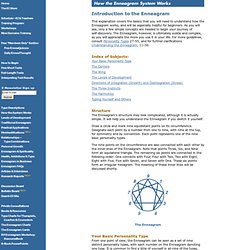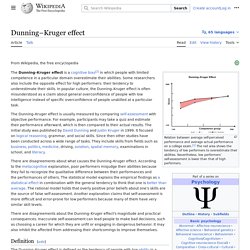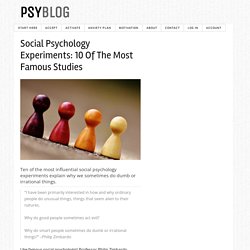

How the Enneagram Personality System Works. This explanation covers the basics that you will need to understand how the Enneagram works, and will be especially helpful for beginners.

As you will see, only a few simple concepts are needed to begin your journey of self-discovery. The Enneagram, however, is ultimately subtle and complex, as you will appreciate the more you use it in your life. For more guidelines, consult Personality Types 27-55, and for further clarifications Understanding the Enneagram, 11-30. Index of Subjects: Structure.
Dunning–Kruger effect. Cognitive bias about one's own skill The Dunning–Kruger effect is a hypothetical cognitive bias stating that people with low ability at a task overestimate their own ability, and that people with high ability at a task underestimate their own ability.

As described by social psychologists David Dunning and Justin Kruger, the bias results from an internal illusion in people of low ability and from an external misperception in people of high ability; that is, "the miscalibration of the incompetent stems from an error about the self, whereas the miscalibration of the highly competent stems from an error about others".[1] It is related to the cognitive bias of illusory superiority and comes from people's inability to recognize their lack of ability. Without the self-awareness of metacognition, people cannot objectively evaluate their level of competence. Original study[edit] Later studies[edit] 10 Brilliant Social Psychology Studies. Ten of the most influential social psychology experiments.

“I have been primarily interested in how and why ordinary people do unusual things, things that seem alien to their natures.Why do good people sometimes act evil? Why do smart people sometimes do dumb or irrational things?” –Philip Zimbardo. Personality Tests. Barry Schwartz on the paradox of choice.